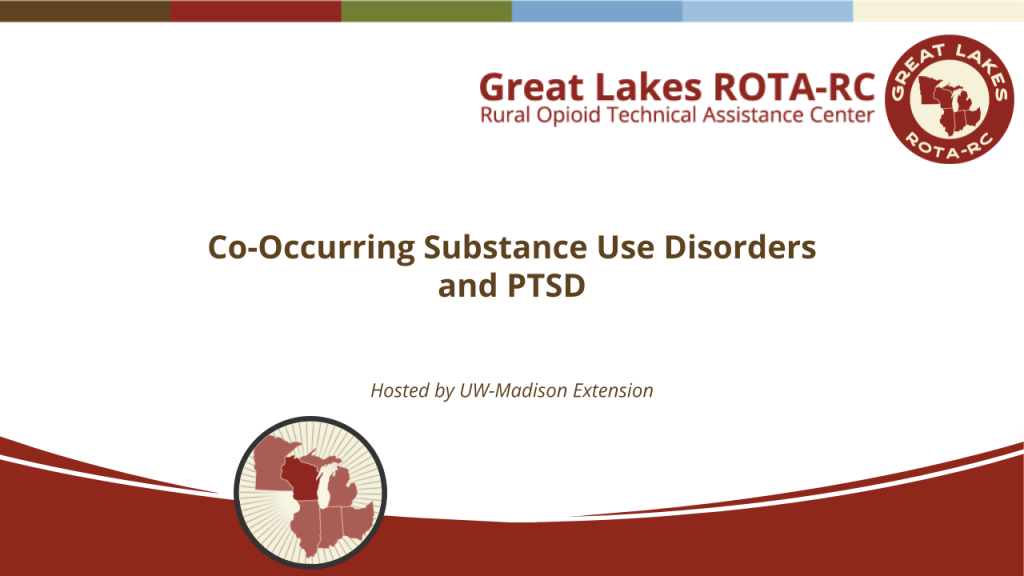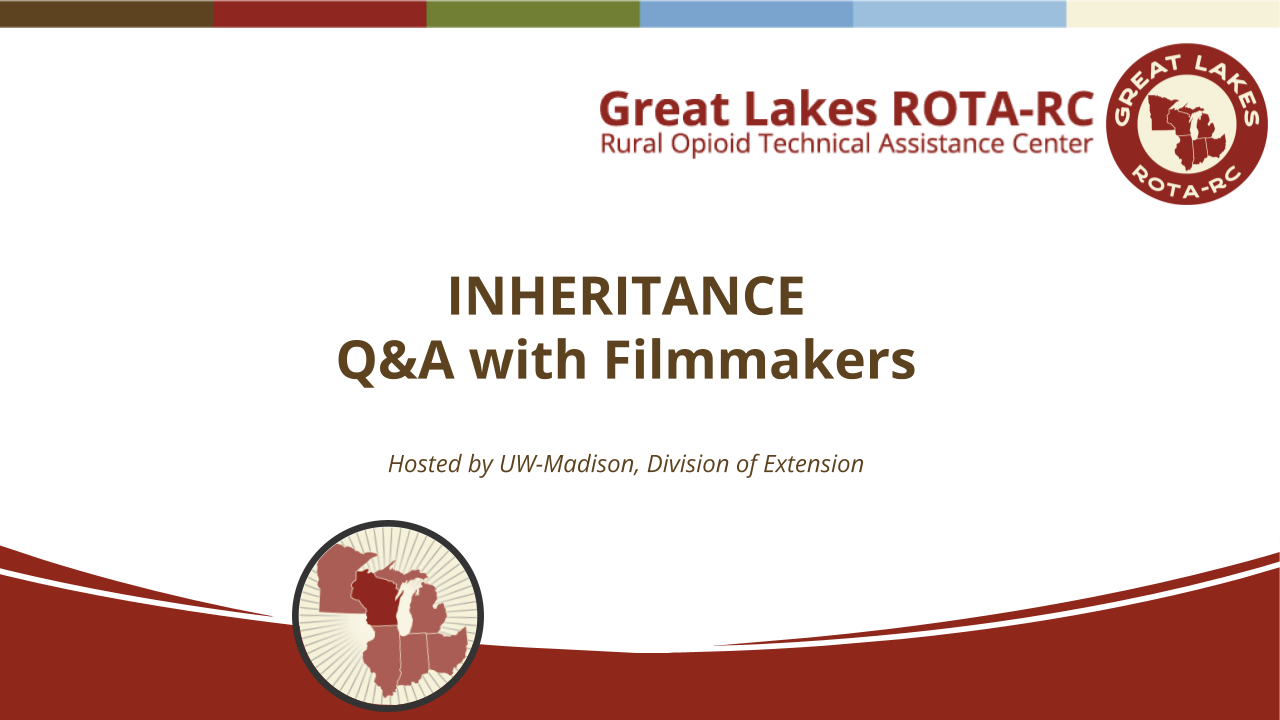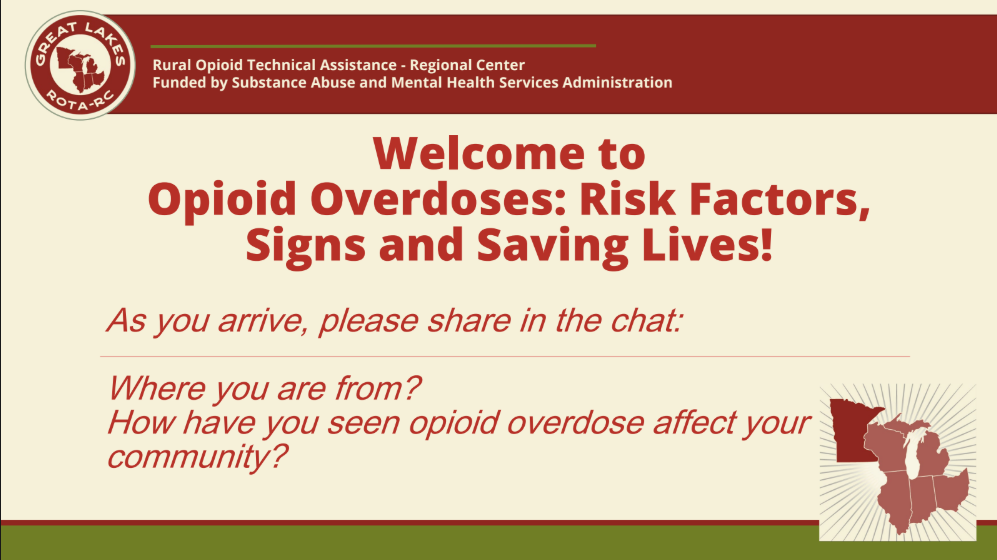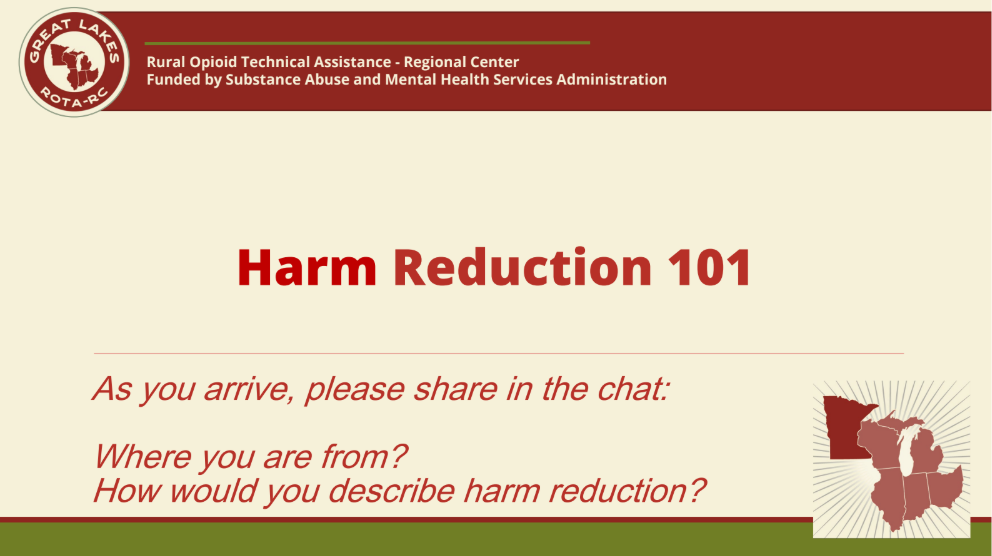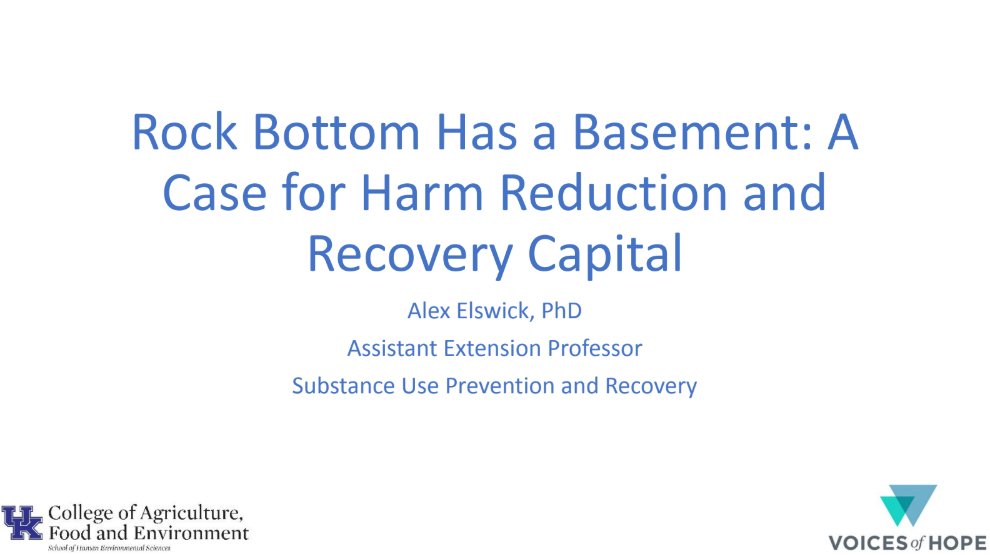Substance Use Management

ROTA-RC Past Events
Event Recordings & Resources
Navigating substance use requires informed, compassionate, and practical approaches. This section provides evidence-based resources, expert insights, and real-world strategies to help individuals, families, and professionals understand and manage substance use effectively.
Scroll the events below for access to previously recorded professional development events
Table of Contents
Co-Occurring Substance Use Disorders and PTSD
Substance use disorder (SUD) is often comorbid with posttraumatic stress disorder (PTSD). In this lecture, we will discuss why these two disorders often co-occur and how those who have both differ from those who have either SUD or PTSD in terms of their physical and mental health and treatment outcomes. We will review research on how to effectively treat those who have both SUD and PTSD. The majority of this part of the lecture will be on clinical strategies to use when treating clients who have SUD and PTSD, including treatment planning, engagement strategies, and monitoring outcomes. Free web-based consumer-oriented and clinician resources for treating PTSD and PTSD co-occurring with SUD developed by the National Center for PTSD will be shared. This lecture is intended for clinicians who treat SUD who want to learn more about how PTSD interacts with SUD and best practices for treating patients with both.
Resources
Film Screening and Q&A with Filmmakers
INHERITANCE explores the underlying causes of the opioid epidemic in America through the life of one boy and five generations of his extended family over 11 years. Curtis, a bright and hopeful 12 year-old, grows up surrounded by love and struggle while every adult in his family – parents, grandparents, aunts, uncles, and cousins – battle addiction. Curtis’s America is a country where people and communities are struggling with an epidemic of substance use disorder, joblessness, poverty, and a deteriorating sense of belonging.
The Risk Mitigation Gap: Implications for Public Health and Medical Providers
According to the 2022 National Survey on Drug Use and Health, 60% of people over the age of 12 in the US used a drug in the past month – alcohol, nicotine, tobacco, and/or illicit drugs. In this session, attendees will be introduced to the gap between conventional ‘just say no’ drug prevention and abstinence-only treatment where there are few to no services available to reduce the risks of drug use. In this gap in our continuum of care, the majority of people who use drugs, including social, experimental, and recreational users are otherwise disconnected from support or health services to stay safe. Beyond these groups, people with substance use disorders also fall into this gap since over 90% will not receive specialty substance use treatment in any given year. Attendees will be introduced to tools and interventions that can help keep the majority of people who use drugs safe while expanding our continuum of care to keep our communities safe.
Resources
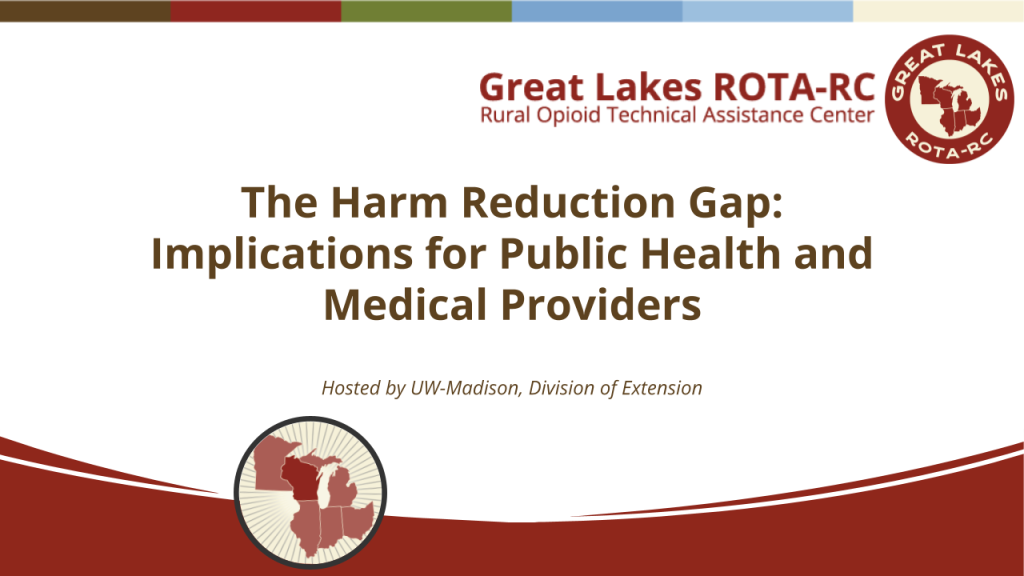
Published: Thursday, September 5, 2024
Attendance/ Credit Information
Working with Pregnant and Parenting People Who Use Drugs
In this session we will be discussing addiction within the context of pregnancy and parenting. Discussion will focus on evidence-based treatments for substance use disorders for pregnant and parenting people who use drugs.
Learning objectives from participation in the session
1. Upon completion, participants will understand the definition of addiction.
2. Upon completion, participants will have a better understanding of evidence-based treatments for addiction.
Resources
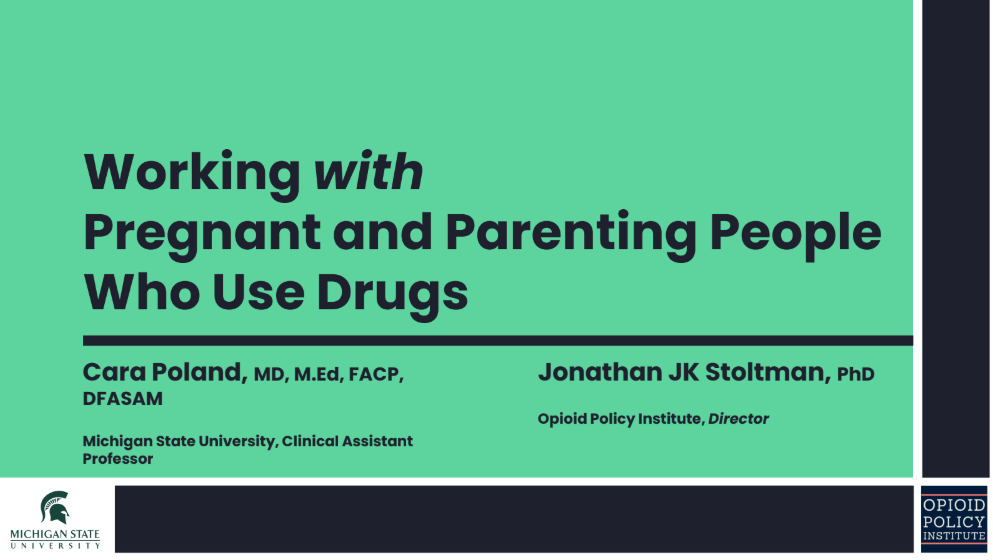
Published: Wednesday, July 10, 2024
Attendance/ Credit Information
Changing Families, Changing Outcomes: Compassionate Responses to Substance Use in the Family
From Tough Love, to Loving Well
This 3 part series provides an overview of why families matter, and some simple things that we can do immediately to help families respond with intention through this process.
Resources
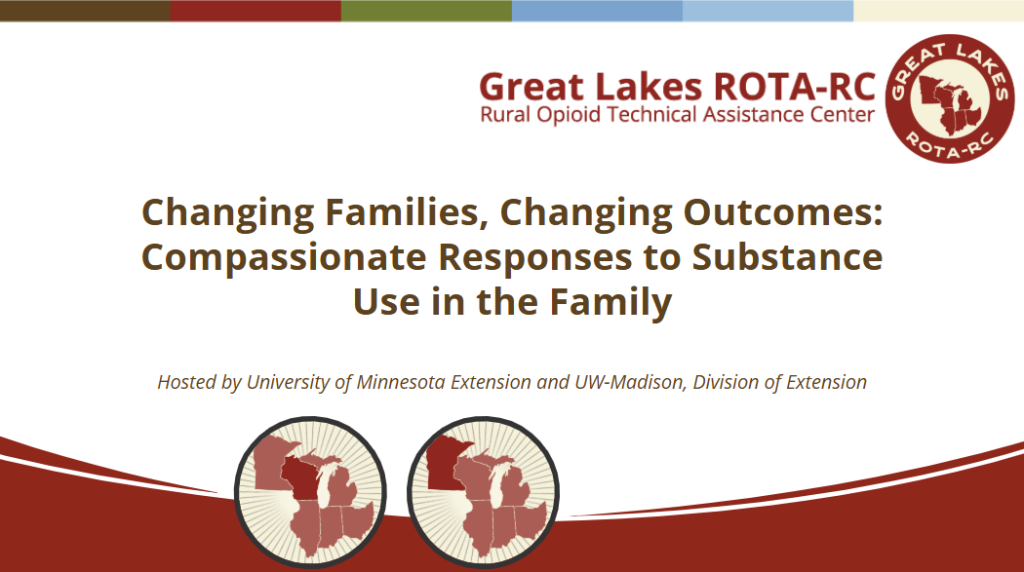
Published: Tuesdays, July 9, 16, 23, 2024
Attendance/ Credit Information
Medications for Opioid Use Disorder (MOUD)
Join Dr. Keri Hager for a discussion about the use of medication to treat opioid use disorder. Participants will learn about the evidence behind medications for opioid use disorder (MOUD), consider ways to explain MOUD, and discuss how to avoid stigma and ensure adequate treatment for people with OUD.
Resources
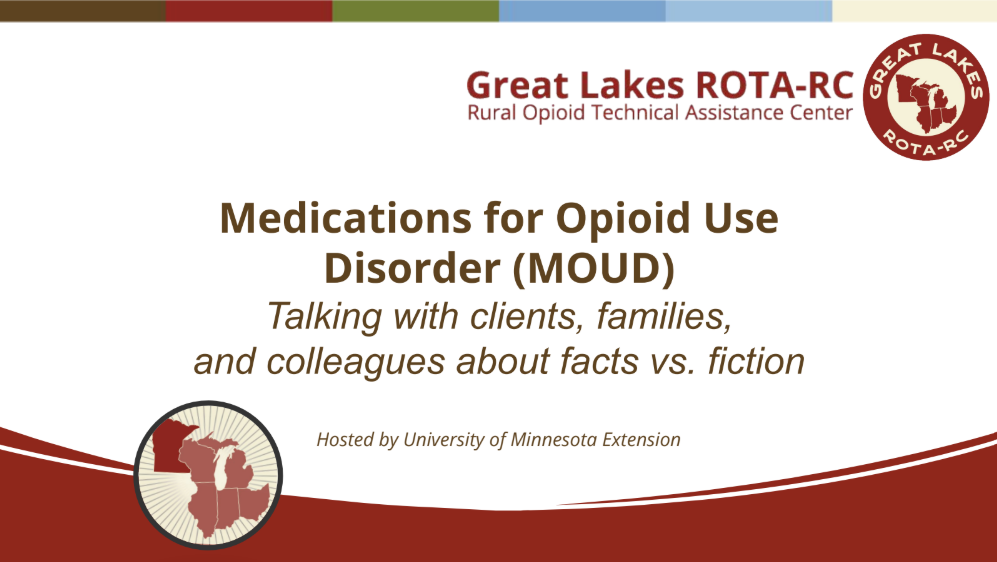
Published: Wednesday, June 26, 2024
Attendance/ Credit Information
Research on Psychedelic Compounds in the Treatment of Substance Use Disorders
This session will review some of the theoretical underpinnings of the therapeutic potential of psychedelic compounds with a focus on psilocybin as a treatment for substance use disorders. The state of the literature and current ongoing research in this space at University of Wisconsin will be discussed.
Learning Objectives
1. Discuss challenges to implementation of clinical models for psychedelic medicine administration.
2. Discuss the state of the science as it relates to psychedelics as potential treatments for SUDs.
3. Describe typical study designs and procedures in psychedelic clinical trials.
Resources
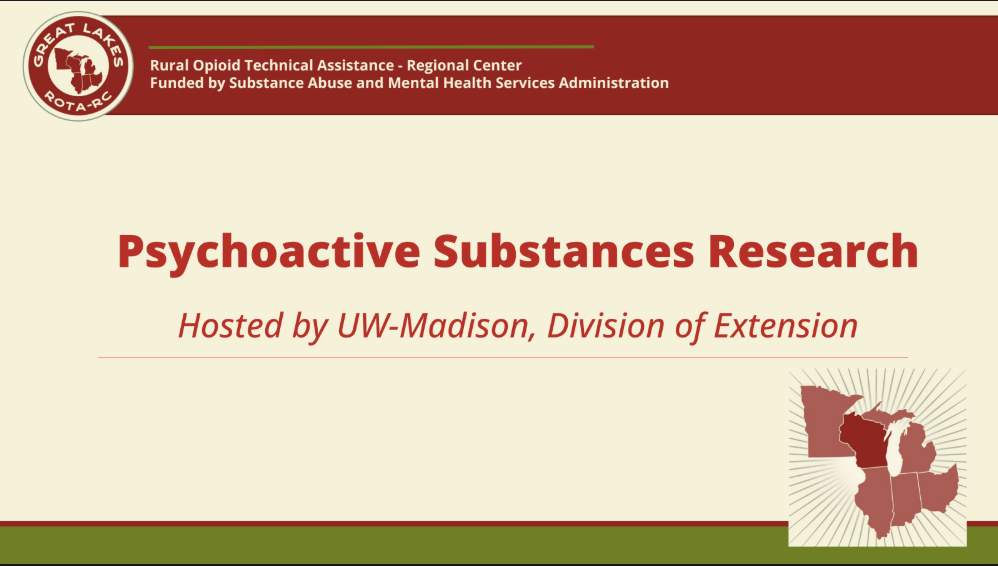
Published: Monday, February 5, 2024
Attendance/ Credit Information
Xylazine & Fentanyl: A Deadly Duo
This presentation will review the history of fentanyl and xylazine in the United States drug supply, compare the pharmacology of fentanyl and xylazine, and describe how fentanyl and xylazine can cause toxicity and overdose, separately and together. Attendees will review the pharmacology of naloxone and its utility in reversing opioid overdose. Participants will also be able to describe risk reduction strategies to reduce overdose and other harm resulting from fentanyl and xylazine use.
Resources
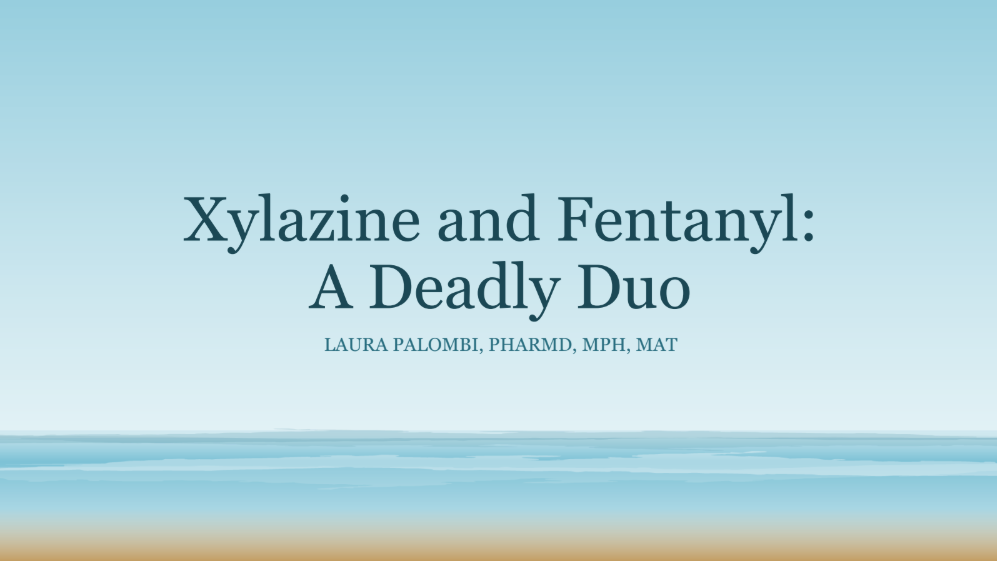
Published: Wednesday, September 6, 2023
Attendance/ Credit Information
Opioid Overdoses: Risk Factors, Signs and Saving Lives!
Dr. Laura Palombi will discuss how to recognize and reverse opioid overdose using naloxone. This presentation will discuss factors that increase an individual’s risk of opioid overdose, signs and symptoms of opioid overdose and the pros and cons of different types of naloxone. Participants will also learn about resources for finding naloxone, legal considerations for prescribing and dispensing of naloxone in Minnesota and naloxone and opioid resources for healthcare providers and patients.
Resources
Risk Reduction 101
Learn about the life-saving role of risk reduction in the opioid crisis. Risk reduction is a set of practical strategies and ideas aimed at reducing negative consequences associated with drug use. This presentation will provide an overview of what risk reduction is, provide specific examples of risk reduction strategies and how these strategies are being implemented in Minnesota.
Resources
Rock Bottom Has a Basement: A Case for Risk Reduction and Recovery
The notion that people with a substance use disorder (SUD) need to hit “rock bottom” to recover is harmful during an overdose crisis occurring nationally. In 2021, more than 100,000 Americans died as a result of a preventable drug overdose. Addiction is a chronic, relapsing brain disorder, and recovery is a process, not an event. This 1-hour presentation will make the case for a more humane, sensible, and effective approach to addressing SUD in our communities.


